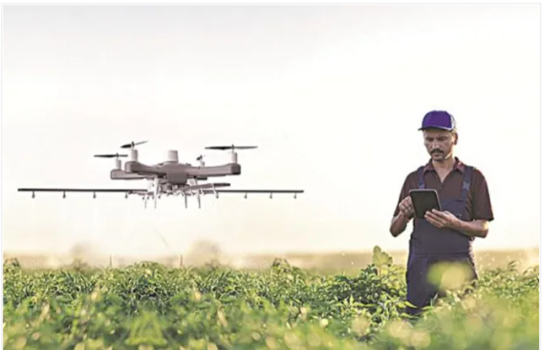K
Kathleen Martin
Guest
As part of the Union Budget, Finance Minister Nirmala Sitharaman had said that the government would encourage start-ups to facilitate drone-as-a-service.
Drone-as-a-service enables enterprises to avail of various services from drone companies. This removes the need for them to invest their own money in drone hardware and software, pilots, and pilot training programmes.
For example, a mining company wants to conduct a mapping and surveying operation. Using drones in this case would be very convenient and helpful. But, for this, the company will have to buy the associated hardware and hire or even train the pilots needed. And this would involve considerable costs.
Here drone-as-a-service facility comes into play. The miner can go to a drone company, which already has the hardware, software and human resources at hand. This drone company will then use its resources to conduct the mapping and surveying operation, in the form of services rendered, for the miner.
According to the government, the drone services industry is slated to grow to over Rs 30,000 crore in the coming three years and create over 500,000 jobs.
On a related note, drone-related courses for skilling will start at select Industrial Training Institutes across all states. The government has said that it would also promote the use of ‘Kisan Drones’ for the purposes of crop assessment, spraying of insecticides, and digitization of land records.
So, what are the applications of drone-as-a-service?Let us look at how it can be used in agriculture. Drones can be hired for crop health monitoring, damage assessment, yield estimation, land preparation, irrigation planning, and crop counting.
Mining enterprises can use drone services for mine site planning, site monitoring and maintenance, mapping and surveying, inventory tracking, and live maps for accurate data capture.
Continue reading: https://www.business-standard.com/podcast/technology/everything-you-need-to-know-about-the-drone-as-a-service-model-122033000072_1.html
Drone-as-a-service enables enterprises to avail of various services from drone companies. This removes the need for them to invest their own money in drone hardware and software, pilots, and pilot training programmes.
For example, a mining company wants to conduct a mapping and surveying operation. Using drones in this case would be very convenient and helpful. But, for this, the company will have to buy the associated hardware and hire or even train the pilots needed. And this would involve considerable costs.
Here drone-as-a-service facility comes into play. The miner can go to a drone company, which already has the hardware, software and human resources at hand. This drone company will then use its resources to conduct the mapping and surveying operation, in the form of services rendered, for the miner.
According to the government, the drone services industry is slated to grow to over Rs 30,000 crore in the coming three years and create over 500,000 jobs.
On a related note, drone-related courses for skilling will start at select Industrial Training Institutes across all states. The government has said that it would also promote the use of ‘Kisan Drones’ for the purposes of crop assessment, spraying of insecticides, and digitization of land records.
So, what are the applications of drone-as-a-service?Let us look at how it can be used in agriculture. Drones can be hired for crop health monitoring, damage assessment, yield estimation, land preparation, irrigation planning, and crop counting.
Mining enterprises can use drone services for mine site planning, site monitoring and maintenance, mapping and surveying, inventory tracking, and live maps for accurate data capture.
Continue reading: https://www.business-standard.com/podcast/technology/everything-you-need-to-know-about-the-drone-as-a-service-model-122033000072_1.html

